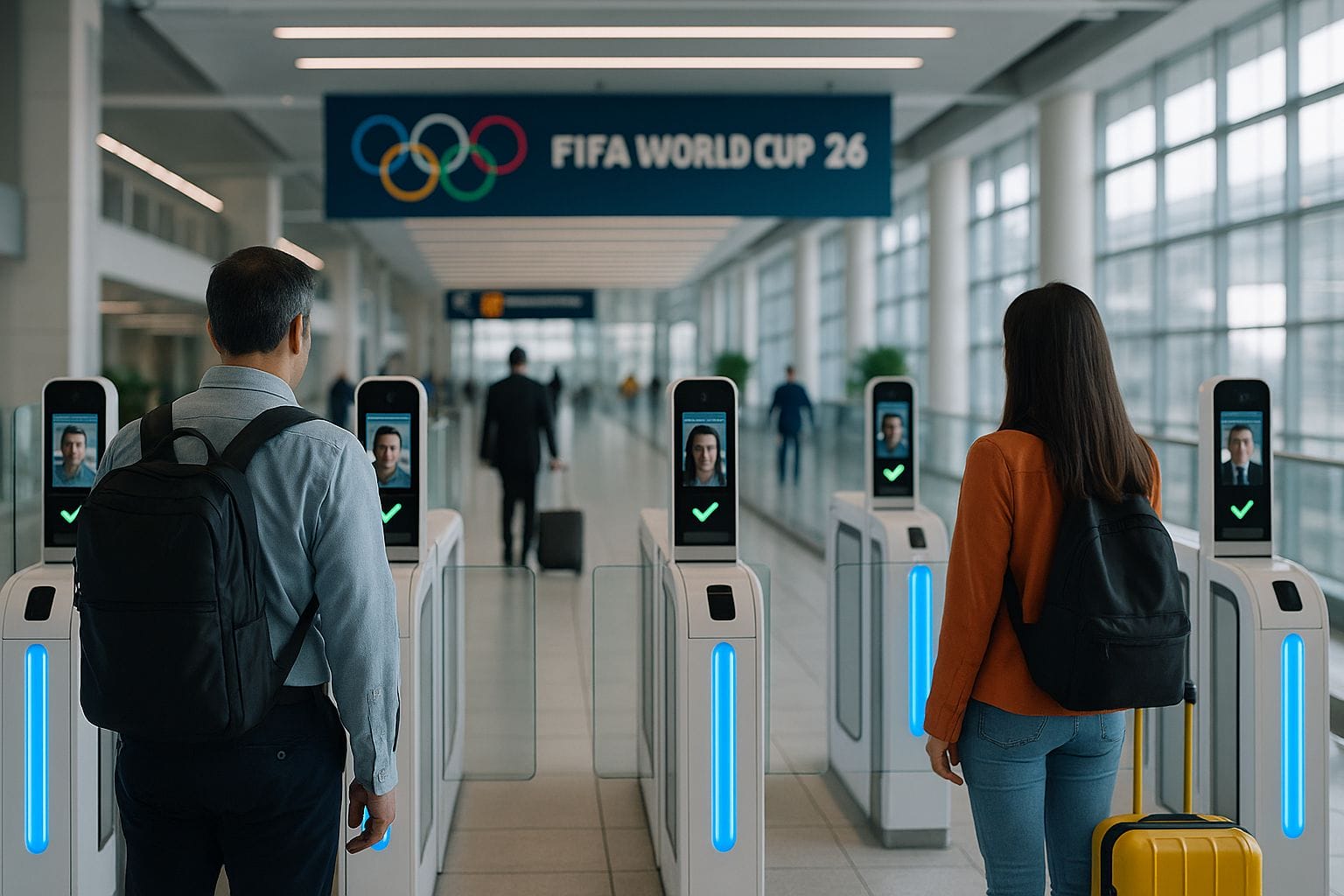The United States is entering what is being dubbed a “mega-decade of travel,” with monumental global events such as the 2026 FIFA World Cup, 2028 Olympic and Paralympic Games in Los Angeles, the 2025 Ryder Cup, and the nation’s 250th Independence anniversary in 2026. However, a new report from the Commission on Seamless and Secure Travel warns that without swift federal action, the country’s outdated air travel systems could collapse under the weight of unprecedented visitor demand.
Released by the U.S. Travel Association, the report presents a strategic blueprint aimed at modernizing America’s travel infrastructure. It outlines necessary reforms in airport security, visa processing, air traffic control, and border management, and urges White House leadership to implement transformative measures ahead of these historic global events.
“We are looking at the most important travel reforms since TSA PreCheck,” said Geoff Freeman, President and CEO of the U.S. Travel Association. “With smart investments and bold action, we can improve both security and efficiency, showcasing America as a world-class travel destination.”
The Risks of Inaction: Overcrowded Airports and Frustrated Travelers
The report details growing concerns that massive travel delays, TSA checkpoint bottlenecks, and customs backlogs could tarnish the visitor experience and jeopardize billions in potential tourism revenue.
“The next few years represent a $100 billion economic opportunity. But without urgent modernization, America risks frustrating travelers and falling short,” Freeman warned.
Kevin McAleenan, former Acting Secretary of Homeland Security and Chair of the Commission, emphasized that the proposed measures reflect expert collaboration across both government and private sectors.
“We now have the tools to enhance security, facilitate smoother entry, and prepare for an influx of international guests with confidence,” said McAleenan.
Four Pillars of Reform: Building the Future of U.S. Travel
Based on the Commission’s findings, the U.S. Travel Association is urging the federal government to implement the following core reforms:
1. White House Task Force for Global Events
The administration is being asked to establish a federal task force, chaired by a senior White House official, to coordinate inter-agency preparations for the decade’s premier global events. This centralized leadership would ensure timely decision-making and clear accountability as America prepares to host millions of international visitors.
2. Visa Processing Overhaul for Global Travelers
To meet expected demand for the 2026 World Cup and Olympics, the report calls for a more efficient, secure, and scalable visa system. Proposed reforms include:
- Full staffing at U.S. consulates worldwide
- Extending B-1/B-2 visa validity for approved travelers by two years
- Creating a National Vetting Service to streamline visa decisions within 30 days
- Launching a “Secure Travel Partnership” program to strengthen visa waiver negotiations and expand access to the U.S.
These enhancements would help avoid delays in visa issuance that could otherwise deter international attendance at major events.
3. Security Technology Investments for Seamless Airport Screening
To meet global expectations for efficiency and convenience, the Commission recommends a historic investment in TSA screening infrastructure, ending the long-standing diversion of the Passenger Security Fee to non-security uses.
With improved funding and advanced technology, the goal is to:
- Eliminate the need to remove shoes, belts, and jackets
- Allow larger liquids and electronics to remain in carry-ons
- Enhance passenger throughput and satisfaction by 2029
These enhancements would align U.S. airports with best-in-class international standards already implemented in Asia and parts of Europe.
4. Modernized Customs and Border Protection (CBP) Protocols
To prevent hours-long customs wait times, especially for returning U.S. citizens, the report proposes:
- Full-strength CBP staffing at all major international airports
- Biometric pre-clearance and vetting systems to reduce face-to-face interviews
- Automated e-gates for low-risk passengers
- Completion of biometric air exit tracking within two years, strengthening immigration enforcement
These improvements are designed to streamline international entry, reduce stress on border staff, and bolster national security through technology-driven pre-clearance processes.
Industry Experts Call for Swift, Bipartisan Action
The Commission is composed of experienced leaders from the Department of Homeland Security, TSA, CBP, State Department, and private airport and infrastructure firms. Their consensus is clear: action is needed now, or the opportunity to transform U.S. travel will be lost.
The report comes at a pivotal moment as bipartisan momentum builds for travel infrastructure reform. Analysts suggest that improving travel efficiency will not only benefit upcoming events but could permanently elevate the U.S.’s status as a premier destination for business and leisure.
“This is our moment to deliver the seamless, secure, and efficient travel experience that both Americans and international visitors expect,” Freeman concluded.
For more travel news like this, keep reading Global Travel Wire
















